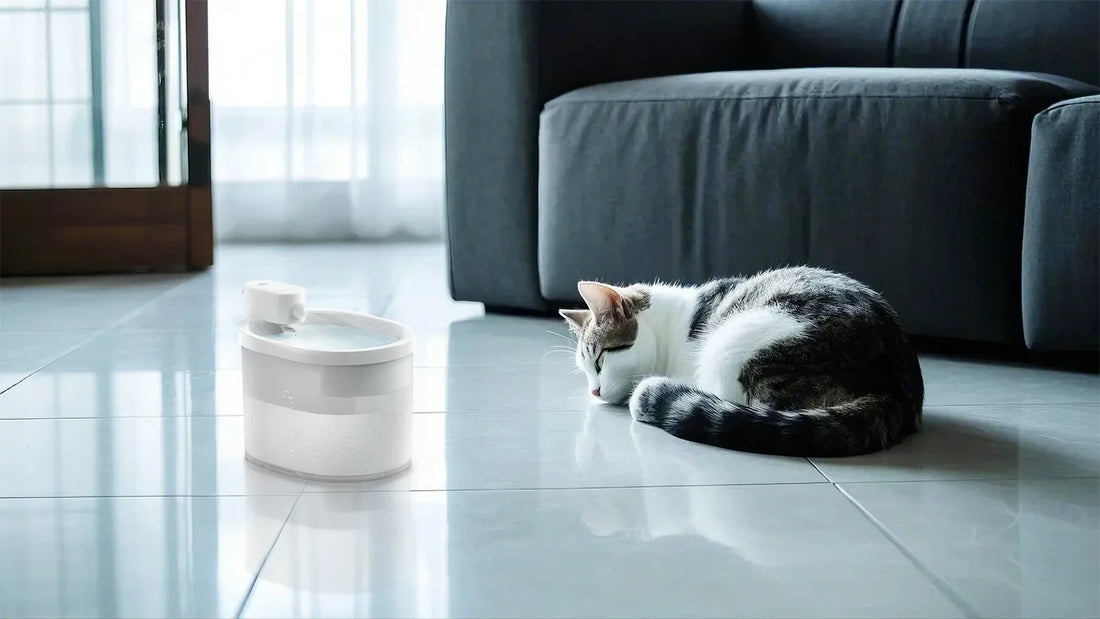If you've noticed your dog suddenly refusing to drink water, it's natural to feel concerned. Water is essential for your dog's health, and a lack of hydration can lead to serious complications. Understanding the reasons behind this behavior is crucial to addressing the issue effectively. In this article, we'll explore the potential causes and provide actionable solutions to help your furry friend stay hydrated and healthy.
Common Reasons Why Dogs Stop Drinking Water
There are several reasons why your dog might stop drinking water. Some of the most common causes include:
- Illness or Pain: Dogs may avoid drinking water if they are experiencing pain or discomfort, especially in the mouth or throat. Conditions such as dental issues, infections, or injuries can make drinking water painful.
- Stress or Anxiety: Changes in the environment, such as moving to a new home or the presence of new pets, can cause stress and lead to a decreased appetite for water.
- Change in Diet: If you've recently changed your dog's food, they might be less inclined to drink water. Some diets contain higher moisture content, reducing the need for additional water intake.
- Environmental Factors: Extreme weather conditions, such as excessive heat or cold, can affect your dog's drinking habits. Additionally, the water bowl's location or cleanliness might discourage them from drinking.
- Medical Conditions: Certain illnesses, such as kidney disease, diabetes, or urinary tract infections, can lead to a reduced desire to drink water.
Signs of Dehydration in Dogs
It's important to recognize the signs of dehydration in dogs to address the issue promptly. Some common symptoms include:
- Lethargy or weakness
- Dry or sticky gums
- Loss of skin elasticity
- Sunken eyes
- Reduced urination
If you notice any of these signs, it's essential to take immediate action to rehydrate your dog and consult a veterinarian if necessary.
How to Encourage Your Dog to Drink Water
If your dog has stopped drinking water, there are several steps you can take to encourage them to hydrate:
- Ensure Clean Water: Make sure your dog's water bowl is clean and filled with fresh water. Dogs are sensitive to odors and tastes, so dirty water might deter them from drinking.
- Change the Water Bowl: Some dogs prefer certain types of bowls, such as stainless steel or ceramic. Experiment with different materials to see what your dog prefers.
- Add Flavor to the Water: Adding a small amount of low-sodium broth or water from canned dog food can make the water more appealing.
- Provide Multiple Water Sources: Place water bowls in different locations around your home to make it easier for your dog to access water.
- Monitor the Temperature: Ensure the water is at a comfortable temperature. In hot weather, add ice cubes to keep the water cool, and in cold weather, offer lukewarm water.
When to Seek Veterinary Help
If your dog continues to refuse water despite your efforts, it's crucial to seek veterinary help. Persistent dehydration can lead to severe health issues, and a veterinarian can diagnose any underlying medical conditions. Additionally, if your dog shows signs of illness, such as vomiting, diarrhea, or lethargy, immediate veterinary attention is necessary.
Preventing Future Dehydration
To prevent future episodes of dehydration, consider the following tips:
- Regular Check-ups: Schedule regular veterinary check-ups to monitor your dog's health and catch any potential issues early.
- Balanced Diet: Provide a balanced diet that meets your dog's nutritional needs and includes adequate moisture.
- Hydration on the Go: When traveling or spending time outdoors, always carry a portable water bowl and fresh water for your dog.
- Monitor Water Intake: Keep an eye on how much water your dog drinks daily. This can help you identify any changes in their drinking habits early on.
Your dog's hydration is vital to their overall health and well-being. By understanding the reasons behind their refusal to drink water and taking proactive steps, you can ensure they stay happy and healthy. If you're ever in doubt, don't hesitate to consult your veterinarian for guidance and support.

![[🎃Halloween Sale]UAHPET Stainless Steel Self-Cleaning Cat Litter Box](http://www.uahpet.com/cdn/shop/files/1-cat-litter-box.jpg?v=1759128420&width=1600)












